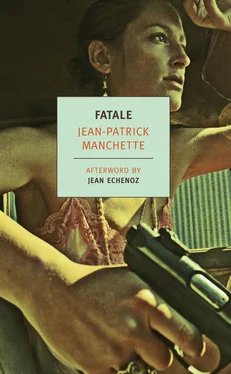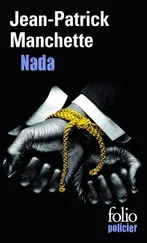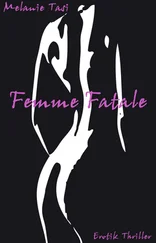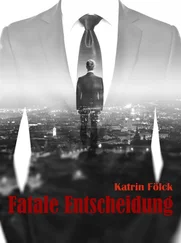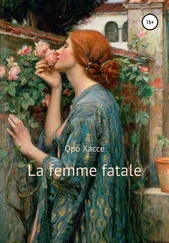Jean-Patrick Manchette - Fatale
Здесь есть возможность читать онлайн «Jean-Patrick Manchette - Fatale» весь текст электронной книги совершенно бесплатно (целиком полную версию без сокращений). В некоторых случаях можно слушать аудио, скачать через торрент в формате fb2 и присутствует краткое содержание. Год выпуска: 2011, ISBN: 2011, Издательство: New York Review Books, Жанр: Криминальный детектив, на английском языке. Описание произведения, (предисловие) а так же отзывы посетителей доступны на портале библиотеки ЛибКат.
- Название:Fatale
- Автор:
- Издательство:New York Review Books
- Жанр:
- Год:2011
- ISBN:978-1-59017-572-9
- Рейтинг книги:5 / 5. Голосов: 1
-
Избранное:Добавить в избранное
- Отзывы:
-
Ваша оценка:
- 100
- 1
- 2
- 3
- 4
- 5
Fatale: краткое содержание, описание и аннотация
Предлагаем к чтению аннотацию, описание, краткое содержание или предисловие (зависит от того, что написал сам автор книги «Fatale»). Если вы не нашли необходимую информацию о книге — напишите в комментариях, мы постараемся отыскать её.
Fatale — читать онлайн бесплатно полную книгу (весь текст) целиком
Ниже представлен текст книги, разбитый по страницам. Система сохранения места последней прочитанной страницы, позволяет с удобством читать онлайн бесплатно книгу «Fatale», без необходимости каждый раз заново искать на чём Вы остановились. Поставьте закладку, и сможете в любой момент перейти на страницу, на которой закончили чтение.
Интервал:
Закладка:
Next she lifted the cover of the hot plate, revealing a choucroute. The young woman proceeded to stuff herself with pickled cabbage, sausage, and salt pork. She chewed with great chomps, fast and noisily. Juices dripped from the edge of her mouth. Sometimes a strand of sauerkraut would slip from her fork or from her mouth and fall to the floor or attach itself to her lower lip or her chin. The young woman’s teeth were visible as she chewed because her lips were drawn back. She drank champagne. She finished the first bottle in short order. As she was opening the second, she pricked the fleshy part of a thumb with the wire fastening, and a tiny pearl of scarlet blood appeared. She guffawed, for she was already drunk, and sucked on her thumb and swallowed the blood.
She went on eating and drinking and progressively lost control of herself. She leaned over, still chewing, and opened the briefcase and pulled out fistfuls of banknotes and rubbed them against her sweat-streaked belly and against her breasts and her armpits and between her legs and behind her knees. Tears rolled down her cheeks even as she shook with silent laughter and kept masticating. She bent over to sniff the lukewarm choucroute, and she rubbed banknotes against her lips and teeth and raised her glass and dipped the tip of her nose in the champagne. And here in this luxury compartment of this luxury train her nostrils were assailed at once by the luxurious scent of the champagne and the foul odor of the filthy banknotes and the foul odor of the choucroute, which smelt like piss and sperm.
Nevertheless, when the young woman arrived in Bléville at eight o’clock that morning, she had retrieved all of her customary self-assurance.
[1] Bléville is, literally, Wheatville, but blé in a slang sense means money. The town’s name is thus something like Doughville.- Trans.
3
When she got off the train at Bléville, the young woman was blonde and her hair was as frizzy as a lamb’s. She was wearing high boots in fawn leather with very high heels, a brown tweed skirt, a beige silk blouse, and a fawn suede car coat. On her right hand she wore two old rings with stones of no great market value and tarnished silver settings, on her left an engagement ring of white gold, and on her left wrist a small square Cartier watch with a leather strap. She hailed a porter and handed him her large traveling bag and her slim attaché case. She no longer held the green briefcase, but was now carrying a shoulder bag made of interwoven broad strips of beige and dark-brown leather. As she crossed the main hall of the station she glanced towards the bank of luggage lockers, which was impressively large.
In front of the station, the young woman handed the porter two francs and got into a taxi, a Peugeot 403. She told the driver to take her to the Résidence des Goélands-the Seagull Apartments. On the way she shivered and rolled up the window against the cold, damp sea breeze.
For her stay in Bléville, the young woman had chosen to call herself Aimée Joubert, and that is what I shall call her from now on. At the Seagull Apartments, Aimée Joubert’s reservation had been duly noted. The girl at the reception desk, barely more than a kid at the awkward age, with acne and thoughtful, mean eyes, checked a register and then produced Aimée’s keys and told her the floor and room number.
“You get two keys, okay?” she said as she handed them to Aimée. “This is to the front door. It’s locked after ten at night. We ask our guests to make as little noise as possible after ten. In the off-season, I mean. We have mostly elderly people here, and they like quiet.”
“That’s fine,” replied Aimée. “I like quiet myself.”
The girl did not show her to her room. Aimée carried her bags to the rear of the hall, took the elevator, and located her studio apartment on the fourth floor: a rather attractive room about twenty square meters in size, along with a wide balcony and a recessed kitchenette. An accordion-style sliding partition separated the cooking from the living area. There was also a narrow bathroom with a long tub and moss-green tiles. The furniture consisted of a double bed with a predominantly bright-red plaid spread, a bedside shelf with a telephone, a teak armoire, two easy chairs with blue velvet upholstery, a teak chest of six large drawers with brass handles, and a teak chair. The walls were white, the carpeting slate gray. In the center of each of three of the walls hung framed prints of eighteenth-century British ships of the line. A small Ducretet-Thomson television stood on the floor in front of the big picture window that took up the whole fourth side of the room. On the wide balcony were two more armchairs-garden chairs-and a round garden table, all in white-painted metal. The balcony overlooked the Promenade-a vast esplanade covered with yellowing grass and traversed by a pinkish roadway-and the choppy gray-green sea. All in all, fairly satisfactory lodgings.
Aimée unpacked and put away her clothes and other personal belongings, including a key-copying apparatus, a device for strengthening her hand muscles, and her chest expanders. Everything fit easily into the armoire. The young woman drew herself a bath. While the water was running she turned the television on, but nothing was being broadcast. She turned the set off and picked up a guidebook entitled Bléville and Its Region and a frilly clear-plastic shower cap. She pulled the cap over her hair and settled herself in the tub with the book. She opened the volume at random and began to read: a whale, which in that millenarian period was believed to presage the end of the world ….(Aimée’s lips moved slightly as she read. She skipped a few lines; in any case the text had been familiar to her for some time.) But it was the advent of oceangoing vessels that supplied the real basis of the town’s wealth. The sons of Bléville proceeded to distinguish themselves in wars with first the English and later the Portuguese, and they ventured as far away as Canada and the East Indies. Under Louis XIV, trade and the guerre de course were the mother’s milk of Bléville’s prosperity. Following the decline of the port in the nineteenth century, the town was to wait until the 1960s for a new boom time to come. In those years the chemical and food-processing industries moved into the valley and the working-class suburbs underwent rapid expansion. Today Bléville can boast …(Aimée broke off her reading at this point. On the facing page was a depiction of the same jetty and lighthouse that could be seen from her studio’s balcony if one looked to the right.)
Читать дальшеИнтервал:
Закладка:
Похожие книги на «Fatale»
Представляем Вашему вниманию похожие книги на «Fatale» списком для выбора. Мы отобрали схожую по названию и смыслу литературу в надежде предоставить читателям больше вариантов отыскать новые, интересные, ещё непрочитанные произведения.
Обсуждение, отзывы о книге «Fatale» и просто собственные мнения читателей. Оставьте ваши комментарии, напишите, что Вы думаете о произведении, его смысле или главных героях. Укажите что конкретно понравилось, а что нет, и почему Вы так считаете.
